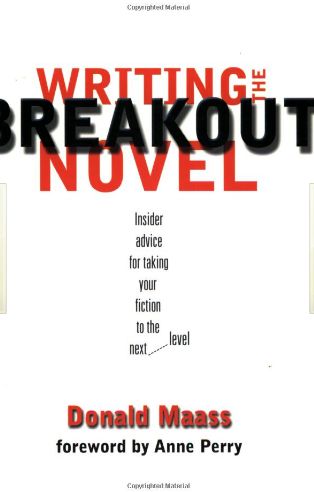Writing the Breakout Novel
I recently finished reading Donald Maass’ Writing the Breakout Novel.
Maass is an author and literary agent and the book has lots of practical and useful advice on how to make your book more readable.
The book concentrates on the key parts of successful books: premise, stakes, setting, characters, viewpoint and themes.
Salon recently published an article on a reader’s advice to writers. This was a response to the recent Guardian article on writers giving writing advice. The Salon article contained some similar ideas to those in Maass’ book, such as making your characters want something.
http://www.salon.com/books/laura_miller/2010/02/23/readers_advice_to_writers/
A few commenters on the web site criticised this advice, accusing the article of just promoting formula fiction.
Similar accusations have been labelled at Maass’ book.
But this is missing the point. Even if you’re writing the most literary of books, it helps to make your characters and settting more interesting.
Maass doesn’t advocate writing cliched books. He argues against the idea that anything that is widely commercial successful is badly written. While some recent bestsellers might not have the most engaging of characters, at the very least they’re able to maintain the tension and conflict enough to keep a lot of people interested.
The book was published in 2001 and while the overwhelming majority of advice is still relevant for writers, it’s interesting to note where the book has dated. When talking about how to make thrillers exciting and convincing Maass writes:
Easiest of all to make convincing are military foes, geological disasters, bad medicine, serial killers and courtroom justice. These threats are better understood, more widely documented and are more commonly experience [sic] by the public. You or I could fall victim to any one of them. In contrast, we are not terribly likely to be hurt by drug cartels, Middle Eastern terrorists or militia-type isolationists. As sources of potential disaster, they do not inspire visceral fear.
The book also has a couple of amusing typos:
Janellen and Bowie’s love transcends pubic pressures, a strength that Lara and Key must learn.
One of the suggestions for trying to find the focus of your book is to imagine that for one reason or another you can only write 10 pages on your novel. What part of your novel would you choose to write about? Then condense these 10 pages down to a single page and Maass suggests you might have a better idea of your novel’s key themes.
